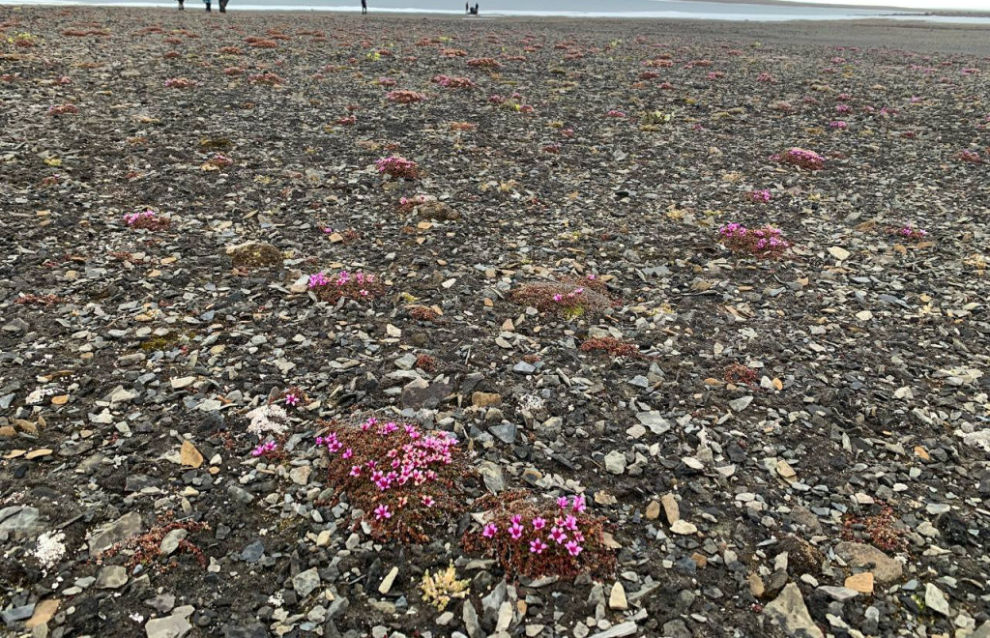New plant species found on Franz Josef Land islands
Scientists from the Arctic Floating University 2023 expedition have found new plant species on the Franz Josef Land islands which had not been detected there previously.
The scientists taking part in the second voyage of the Arctic Floating University 2023 have completed their research program on the islands of the Franz Josef Land archipelago, Novaya Zemlya, and the Barents and Kara sea coasts from the Yugorsky Strait to the Taimyr Peninsula. The expedition on the research vessel Mikhail Somov started out from Arkhangelsk on July 4 and has been going on for over a month now.
“We have obtained valuable research data during our 11 land expeditions,” Lyudmila Drachkova, head of the Arctic Floating University expedition team, said. “The flora on the Komsomolskiye Islands and Wilczek Island has proved to be much richer than was believed earlier.”
The new plant species were spotted by Yuri Bobrov, Head of the Department of the Environment and Geology at Pitirim Sorokin Syktyvkar State University.
“On Wilczek Island it was a variety of saxifrage,” the scientist said. “Seven new plant species have been found on the Komsomolskiye Islands where until now we knew of only two; they are Arctic poppies, two varieties of saxifrage, scurvy-grass, mouse-ears, buttercups, a variety of whitlow-grass and at least two species from the grass family, which are meadow-grass and foxtail grass.”
The Franz Josef Land archipelago in the Arctic Ocean is hard to reach, so there are many islands where human feet have hardly ever trod. That is what makes the data obtained by the Arctic Floating University expedition so valuable for the academic community.
In addition to Wilczek Island and the Komsomolskiye Islands, the researchers visited Hayes Island and Wilczek Land, which is almost completely covered with glacier. While in the northern part of the expedition’s unique route the researchers beheld Arctic deserts, as they moved southward to the coasts of the Barents and Kara seas they found themselves in the tundra. Their objective there was to explore flora near the Bely Nos weather station on the Yugorsky Strait coast, the Marresale weather station on the Yamal Peninsula and the Sopochnaya Karga weather station on the Yenisei Gulf coast.
“Despite the heavy pollution of the area around the weather stations, the biodiversity, in general, is not poor,” Yuri Bobrov added. “There are no alien plant species there. Interestingly, wild flora takes over areas closer to houses. Admittedly, most species can be found on the old foundations of houses, which, presumably, protect plants from winds, warm up faster and do not freeze entirely through or, maybe, they defrost faster.”
Arctic Floating University is an integrated research and educational expedition. In 2023, it undertook two voyages. One was to Novaya Zemlya, Kolguyev Island and Vaygach Island, in which 55 scientists and students took part. The 17 participants of the second expedition to the Franz Josef Land archipelago included microbiologists, geologists, soil scientists, chemists, and specialists in sea ice and marine mammals from universities and research organizations in Arkhangelsk, Moscow, St. Petersburg, Perm and Syktyvkar.
